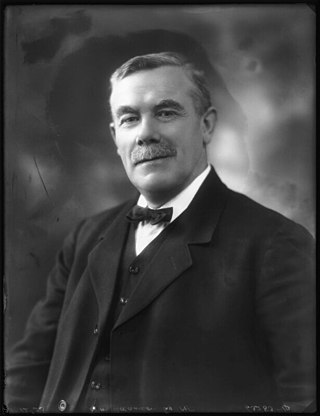Related Research Articles

The 1983 United Kingdom general election was held on Thursday 9 June 1983. It gave the Conservative Party under the leadership of Margaret Thatcher the most decisive election victory since that of the Labour Party in 1945, with a majority of 144 seats and the first of two consecutive landslide victories.

The 1935 United Kingdom general election was held on Thursday 14 November 1935. It resulted in a second landslide victory for the three-party National Government, which was led by Stanley Baldwin of the Conservative Party after the resignation of Ramsay MacDonald due to ill health earlier in the year. It is the most recent British general election to have seen any party or alliance of parties win a majority of the popular vote.

The 1931 United Kingdom general election was held on Tuesday, 27 October 1931. It saw a landslide election victory for the National Government, a three-party coalition which had been formed two months previously after the collapse of the second Labour government. Journalist Ivor Bulmer-Thomas described the result as "the most astonishing in the history of the British party system".
The National Labour Organisation, also known simply as National Labour, was formed in 1931 by supporters of the National Government in Britain who had come from the Labour Party. Its leaders were Ramsay MacDonald (1931–1937) and his son Malcolm MacDonald (1937–1945).

William Adamson was a Scottish trade unionist and Labour Party politician. He was Leader of the Labour Party from 1917 to 1921 and was Secretary of State for Scotland in 1924 and during 1929–1931 in the first two Labour ministries headed by Ramsay MacDonald.
The ceremonial county of Cornwall, which includes the Isles of Scilly, is divided into six parliamentary constituencies. They are all county constituencies.
The 1928 Ashton-under-Lyne by-election was held on 29 October 1928. It was notable for having the highest turnout of any Parliamentary by-election in Great Britain.

The 1937 Islington North by-election was a parliamentary by-election held on 13 October 1937 for the British House of Commons constituency of Islington North in Islington, North London.
The 1926 Smethwick by-election was a by-election held on 21 December 1926 for the British House of Commons constituency of Smethwick in Staffordshire.
The 1940 Newcastle upon Tyne North by-election was a parliamentary by-election held on 7 June 1940 for the British House of Commons constituency of Newcastle upon Tyne North.
The 1939 Monmouth by-election was a by-election held for the British House of Commons constituency of Monmouth in Wales on 25 July 1939.
The 1924 Dundee by-election was a by-election held on 22 December 1924 for the British House of Commons constituency of Dundee, in Scotland. It was won by the Labour Party candidate, Thomas Johnston.
The 1929 Kilmarnock by-election was a by-election held on 27 September 1929 for the British House of Commons constituency of Kilmarnock in Ayrshire.

The 1936 Combined Scottish Universities by-election was a by-election held from 27 to 31 January 1936 for the Combined Scottish Universities, a university constituency of the British House of Commons.

The 1945 Motherwell by-election was held on 12 April 1945, following the death of Labour Party Member of Parliament (MP) for Motherwell, James Walker.
The 1939 Batley and Morley by-election was a parliamentary by-election held in the United Kingdom on 9 March 1939 for the House of Commons constituency of Batley and Morley in the West Riding of Yorkshire.
The 1939 Colne Valley by-election was a parliamentary by-election held on 27 July 1939 for the British House of Commons constituency of Colne Valley.
The 1931 Rutherglen by-election was held on 21 May 1931. The by-election was held due to the death of the incumbent Labour MP, William Wright. It was won by the Labour candidate David Hardie
The Ogmore by-election of 1931 was held on 19 May 1931. The by-election was held due to the death of the incumbent Labour MP, Vernon Hartshorn. It was won by the Labour candidate Ted Williams, a miners' agent and a member of Glamorgan County Council.
Several British members of Parliament have been sponsored by mining trade unions. Many were sponsored by the National Union of Mineworkers, its predecessor the Miners' Federation of Great Britain, and the local trade unions which preceded it.
References
- ↑ "Leigh Rayment - Commons". leighrayment.com. Archived from the original on 7 June 2008.
- ↑ Craig, F. W. S. (1969). British parliamentary election results 1918-1949 (1 ed.). Glasgow: Political Reference Publications. ISBN 0-900178-019. Page 562